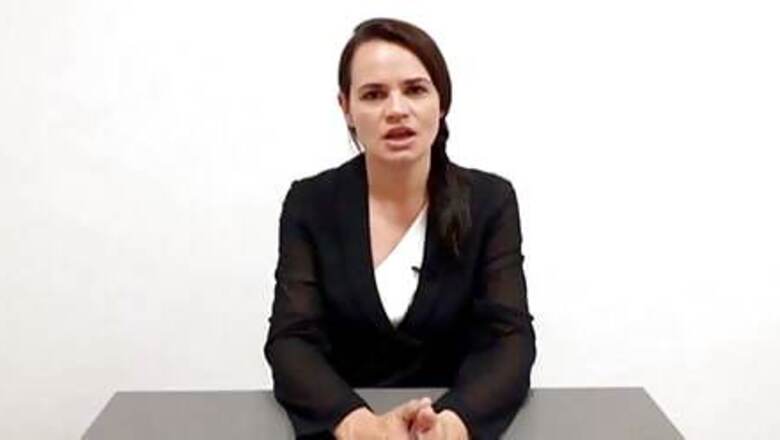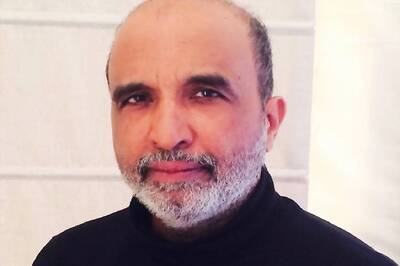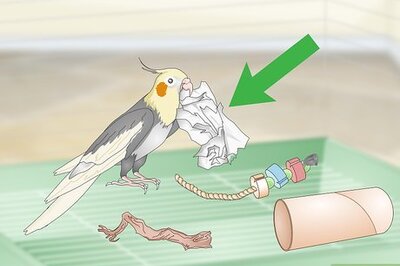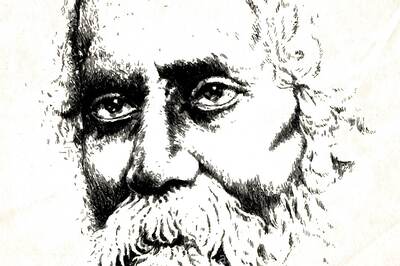
views
MINSK Belarusian presidential challenger Sviatlana Tsikhanouskaya urged European Union leaders on Wednesday not to recognise what she called fraudulent election results, saying longtime leader Alexander Lukashenko had lost all legitimacy.
Tsikhanouskaya was speaking from exile in neighbouring Lithuania before an emergency EU summit, due to be held by video conference, to discuss the crisis unfolding in Belarus, where the Aug.9 election sparked mass protests.
Tsikhanouskaya says she was the rightful winner of the election and wants new elections to be held under some kind of international supervision.
“I call on you not to recognise these fraudulent elections,” Tsikhanouskaya said, speaking in English in a video address. “Mr. Lukashenko has lost all legitimacy in the eyes of our nation and the world.”
Lukashenko is struggling to contain the protests and a wave of strikes that pose the biggest challenge to his 26-year-old hold on power. He denies rigging the election to secure a sixth term.
The EU has signalled it will impose sanctions on Belarusian officials it deems responsible for election fraud and a crackdown on demonstrations in which at least two protesters have been killed and thousands detained.
Attention is firmly focused on how Russia will respond to the biggest political crisis facing an ex-Soviet neighbour since 2014 in Ukraine, when Moscow intervened militarily after a friendly leader was toppled by public protests.
Flight tracking data showed that a Russian government plane used to carry senior government officials, including the head of the FSB security service, had made a quick flight to Belarus and back, landing in Moscow early on Wednesday.
Russian President Vladimir Putin, who has offered Lukashenko military help if needed, spoke by phone to German Chancellor Angela Merkel, French President Emmanuel Macron and European Council President Charles Michel.
He warned Merkel and Macron against foreign meddling in the affairs of Belarus, a close Russian ally that carries Russian energy exports to the West and is viewed by Moscow as a strategic buffer against the EU and NATO.
‘BELARUS IS NOT EUROPE’
The EU’s Industry Commissioner Thierry Breton said the bloc would take into account the nature of Minsk’s relationship with Russia.
“Belarus is not Europe, it is on border of Europe, between Europe and Russia, and the situation is not comparable to Ukraine or Georgia. Belarus is really strongly connected with Russia and the majority of the population is favourable to close links with Russia,” he said.
Swedish Foreign Minister Ann Linde has offered to visit Minsk in her role as incoming chair of the OSCE, a security body that includes both Western countries and former Soviet states, and often mediates in the region.
Linde said she had spoken with Tsikhanouskaya who was “very positive” in her reaction to the offer of mediation by the OSCE.
The protests have spread to some of the country’s major industrial plants that underpin Lukashenko’s Soviet-style economic model. Police dispersed a demonstration and detained two people at the Minsk Tractor Works (MTZ) plant on Wednesday.
Local media reported that security forces had taken control of a 19th century theatre in Minsk that became a flashpoint for protests after its director, a former Belarusian diplomat, was fired after speaking out in favour of the protests.
Disclaimer: This post has been auto-published from an agency feed without any modifications to the text and has not been reviewed by an editor




















Comments
0 comment